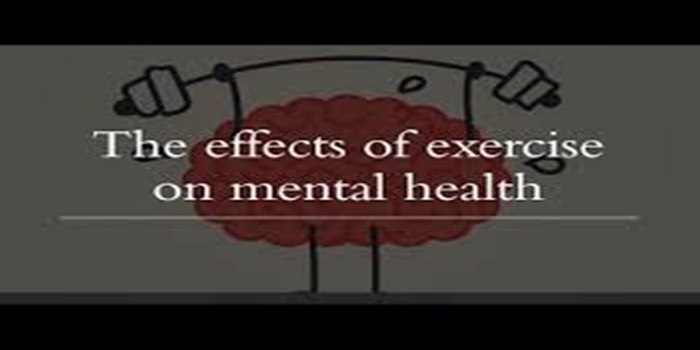In this article, we discussed the impact of exercise on mental health, the meaning of mental health,
Definition
Mental health is a state of mental well-being that enables people to cope with the stresses of life, realize their abilities, learn well and work well, and contribute to their community.
Mental health is the overall wellness of how you think, regulate your feelings and behave. Sometimes people experience a significant disturbance in this mental functioning.
Exercise is a subset of physical activity that is planned, structured, and repetitive and has as a final or an intermediate objective the improvement or maintenance of physical fitness
Exercises are a series of movements or actions which you do in order to get fit, remain healthy, or practice for a particular physical activity. Exercise releases chemicals in the brain, such as endorphins, serotonin, and stress hormones, that can make you feel good. It can also help you meet people and get more involved in your community.
Exercise can have many mental health benefits, including:
Improved mood: Exercise releases chemicals in the brain that can boost your mood and energy.
Reduced stress and anxiety: Exercise can help reduce stress and anxiety.
Better sleep: Exercise can help you sleep better.
Increased self-esteem: Exercise can boost your self-esteem and confidence.
Improved concentration: Exercise can help you concentrate.
Reduced loneliness: Exercise can help you reduce loneliness by offering new ways to meet people.
Improved cardiovascular health: Exercise can improve your cardiovascular health.
Reduced mental fatigue: Exercise can help reduce mental fatigue.
Improved emotional regulation: Exercise can help improve emotional regulation.
Mental health is an important part of health and well-being. It helps people make decisions, build relationships, and shape the world around them.
Some ways to improve mental health include: Getting physical, Eating right, Managing stress, Performing small acts of kindness, and Volunteering.
Exercise can have a significant impact on mental health, including:
Reducing stress and anxiety: Exercise can help reduce symptoms of mild anxiety and depression. It can also help prevent the development of mental health problems.
Improving mood: Exercise can boost your mood and self-esteem. It can also help you feel more alert and energetic.
Improving sleep: Exercise can help you sleep better, which can be disrupted by stress, anxiety, and depression.
Treating mental health conditions: Exercise can be as effective as antidepressants or cognitive behavioral therapy for mild to moderate depression.
Improving concentration: Exercise can help you concentrate and be more on task.
Preventing age-related decline: Exercise can help prevent age-related decline in neuronal growth.
Exercise releases chemicals in the brain, such as endorphins, serotonin, and stress hormones, that can improve your mental health.
Exercise improves by reducing anxiety, depression, and negative mood and by improving self-esteem and cognitive function.
Exercise has also been found to alleviate symptoms such as low self-esteem and social withdrawal.3 Exercise is especially important in patients with schizophrenia since these patients are already vulnerable to obesity and also because of the additional risk of weight gain associated with antipsychotic treatment, especially with the atypical antipsychotics.
Patients suffering from schizophrenia who participated in a 3-month physical conditioning program showed improvements in weight control and reported increased fitness levels, exercise tolerance, reduced blood pressure levels, increased perceived energy levels, and increased upper body and hand grip strength levels.
Thirty minutes of exercise of moderate intensity, such as brisk walking for 3 days a week, is sufficient for these health benefits.
Conclusion
Mental health service providers can thus provide effective, evidence-based physical activity interventions for individuals suffering from serious mental illness. Further studies should be done to understand the impact of combining such interventions with traditional mental health treatment including psychopharmacology and treatment.
READ: The Importance of Exercise

